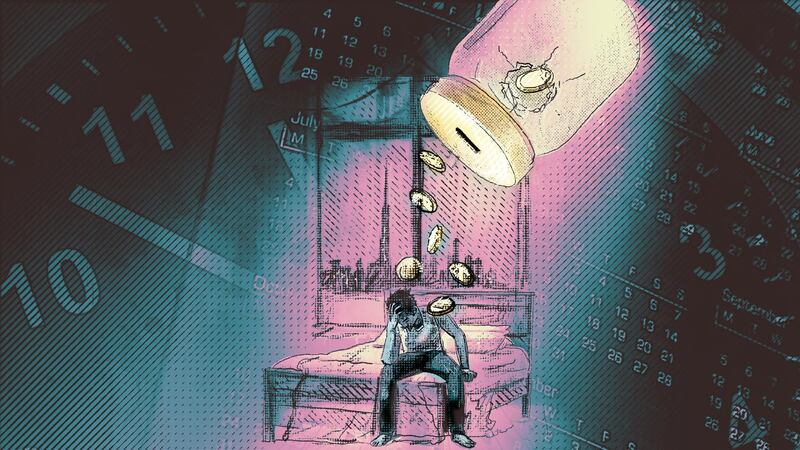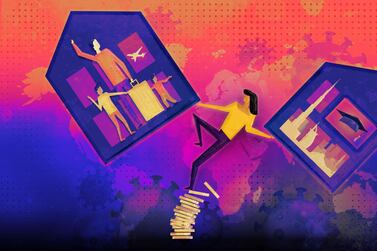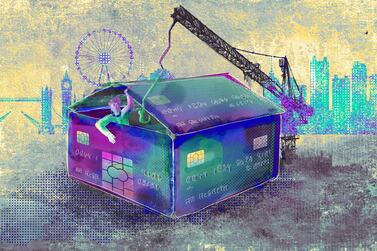I lost my job a few months ago and I am worried about missing payments on my credit card and personal loan.
I haven’t missed any payments so far, but I have had to reduce the credit card instalments to the minimum monthly payment even though I know the interest is building and I risk owing more.
I haven’t been able to find another job yet, but the financial strain is beginning to take its toll on other parts of my life as I am burning through my savings quite quickly.
I have budgeted the remainder of my savings to last for another two to three months at most before my situation will start to impact my other financial responsibilities, such as paying for rent, food, utilities and phone. I am finding my situation very stressful and I can’t sleep at night because I fear that I will have no money left to live on soon.
I read that I might be able to ask my bank for help under the Central Bank of the UAE’s Targeted Economic Support Scheme, but I am unsure if that is still possible now that the Covid-19 pandemic movement restrictions have been lifted and life is beginning to get back to normal here.
If the scheme is still open, should I request a payment holiday or even a consolidation loan to help me buy some time until I find a new job? Or would this make my financial situation worse in the long term? I would be grateful for any advice you can give me. TG, Dubai
Debt Panellist 1: Steve Cronin, founder of DeadSimpleSaving.com
There are many people in a similar situation and this shows the danger of having a credit card balance and a personal loan. Ideally, a cash buffer covering six months’ total expenses would protect you, as it would cover your loan and card payments during that period while you search for a job.
However, you don’t have that luxury now and you must act fast to stop your situation deteriorating. Taking control of your finances will also help to reduce stress and sleepless nights.
First, track your cashflow in detail for the next few months, even daily. What major expenses are coming out on what day, what income if any will be coming in, what is the daily balance of your account expected to be? Where you see the balance dipping too low, you know you have a cashflow problem ahead of you and you can plan in advance to prevent it.
You should try to get a payment holiday from your bank to give you more breathing space. Formally request it by email or phone, with evidence that you have lost your job. Be careful that they may freeze any money you have in your account, so you might want to place any spare cash in a savings account with another bank or even offshore.
The Tess scheme was officially extended by the UAE Central Bank until June 2021. In practice, banks may vary in their willingness to grant a payment holiday, even though they should in theory. Be persistent.
You should also ask for a consolidation loan to stop the interest payments on your credit card getting too high. The bank may be reluctant given your lack of salary, but again, be persistent.
You should also do whatever it takes to reduce your living costs and find ways to free up money, either by finding any kind of part-time work, getting family members to do the same, borrowing money from friends and family or selling assets. This will put you on a much firmer foundation to prevent defaulting on your loans.
Debt panellist 2: R Sivaram, executive vice president and head of retail banking products at Emirates NBD
You are going through an unfortunate situation and it is creditable that you are trying to be diligent in making your monthly instalment payments and managing your finances proactively.
As a first step, I would recommend that you reach out to the banks concerned to get a clear understanding of your dues. You should earnestly express your intention to settle your debts fully and request for a feasible repayment plan either through instalment holidays, restructuring of your loan payment terms, consolidating your debts into one loan or a combination of these.
It is important that you try to find employment as soon as possible, as having a regular income will be key to servicing the repayment plans. I would also suggest that you explore reducing expenses as well as disposing of any personal assets that can help in paying off part of the debts and reduce the monthly repayments you would need to make.
I wish you the very best with arriving at a suitable payment plan with your banks and in finding a new job quickly that can help stabilise your financial situation.
Debt panellist 3: Carol Glynn, founder of Conscious Finance Coaching
I’m sorry to hear you have lost your job. It is a very stressful situation, especially at the moment when it can be difficult to find new roles in certain hard-hit industries.
Many will bury their head in the sand in these situations, unable to face up to what is happening and this almost always means their situation spirals out of control and adds thousands more to their debt in the long run.
Tess has been extended to June this year. However, each bank implements this in their own way, so there are no guarantees your bank will offer assistance.
However, most banks are still offering help in some form to individuals who have lost their jobs due to the Covid-19 pandemic. You say you have not missed any payments to date, so this positive credit record will be an advantage to you now.
You will need to show evidence from your previous employer that you lost your job because of the pandemic.
My advice would be to speak to your bank’s relationship manager as soon as possible. Explain you have lost your job and are actively seeking a new one. Ask them what options are available to you, and be prepared to negotiate and push for what you need.
A consolidation loan would likely be the cheapest option for you in the long run, but this may be difficult to negotiate while unemployed. Most banks will offer a payment holiday on your personal loan, potentially up to three months.
Ensure you understand the terms and conditions of any arrangement you are being offered. For example, some banks charge an administration fee, so you will need to budget for this cost.
Some offer interest-free periods during the payment holiday, while others continue to charge interest on the outstanding balance of the debt during the payment holiday, allowing only for non-payment without charging you a late payment fine. It’s important to understand if what they are offering is truly beneficial to you.
Are there ways you can further reduce your expenses? Possibly stay with a friend to save on rent, if you have a car rental, return the car and use public transport, and cook at home as much as possible for example.
Have you considered ways to generate income in the short term such as dog walking, freelancing or taking on short-term positions such as maternity leave cover?
Do you have items of value you no longer need or want that can be sold to generate some cash, such as clothing or furniture you don’t use? I would also suggest not using your credit card at all if possible. Pay for what you need using a debit card or cash. This will help to limit your spending, but also reduce the impact of compounding interest charges on an ever-increasing credit card balance.
I’m also sorry to hear you are not sleeping well. This will have a negative impact on your mindset and health, adding to your stress levels. I know firsthand it’s easier said than done, but do try to regulate your sleep as much as you can. Everything seems so much worse when we are tired. Lack of sleep will limit our creativity and ability to solve problems rationally. There are many free meditation apps that can aid sleep and reduce stress.
Putting a plan in place with your bank and a plan B, such as borrowing from family or seeking temporary, lower-paid employment until a permanent position comes available, will hopefully help you feel more in control of your situation and aid your sleep. Exercise also helps. Something as simple as taking a long walk can have a major positive impact. It’s proven to help reduce stress and improve quality of sleep. And it’s free!
The Debt Panel is a weekly column to help readers tackle their debts more effectively. If you have a question for the panel, write to pf@thenational.ae









